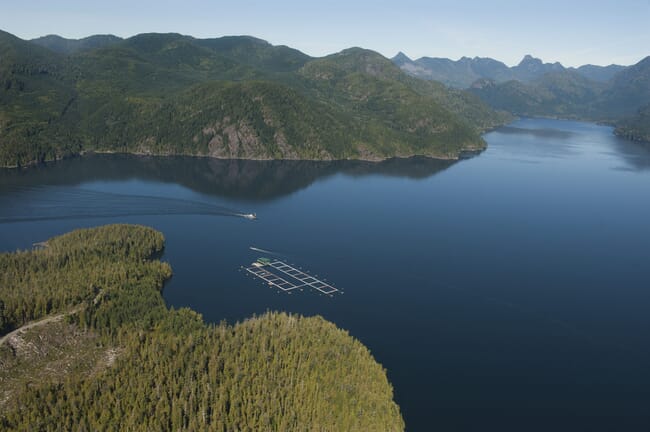
A large part of the decline is due to the government's refusal to renew licences for 19 farms in the Discovery Islands in 2020 © CAIA
Following the publication of the latest statistics, the Canadian Aquaculture Industry Alliance (CAIA) has urged the federal government to “make science-based, common-sense decisions about ocean-based aquaculture to enable salmon farmers to regain lost production and provide affordable meals to Canadian families”.
“Farm-raised salmon is the most popular seafood choice of Canadians. This reduction from the peak in 2016 adds up to the equivalent of eliminating more than 390 million salmon meals in total, and when considering Canadian-raised salmon that is not exported, removing 192 million salmon meals from the dining tables of Canadian households,” they add.
For many years, Canada was the fourth largest salmon producer in the world: behind Norway, Chile and Scotland. Norway’s salmon production was 1.55 million tonnes in 2022, 17 times larger than Canada’s 2023 production. The drastically reduced 2023 production numbers leave Canada defending its fourth position, with Australia and Faroe Islands very close (2022 production for those countries was 77,600 tonnes and 89,100 tonnes respectively). This is despite Canada having the world’s longest coastline and far more bio-physical potential than these other nations to lead the world in sustainable seafood farming.
“Canadians have said again and again that they want access to more Canadian-produced food. In the case of Canadian-raised salmon, they’re being denied and are seeing less and less,” said Tim Kennedy, president and CEO of the CAIA, in response to the new figures.
“Canada’s modern ocean salmon farming is among the most sustainable in the world, with all farms being certified to international third-party standards and operating under modern regulations to protect the environment. The farm closures in BC since 2020 have not been based on science and have not put Canadian consumers’ best interests and health first. The peer-reviewed science consistently shows salmon farms have a less-than-minimal impact on wild salmon and salmon is one of the healthiest products for consumers,” continued Kennedy.
“For a country with so much potential, the overall reduction of Canadian-raised salmon is staggering. We are ocean farming less than 1 per cent of the viable area along our coastlines and producing less and less of an important domestic food supply when the market demand is remaining steady.”




